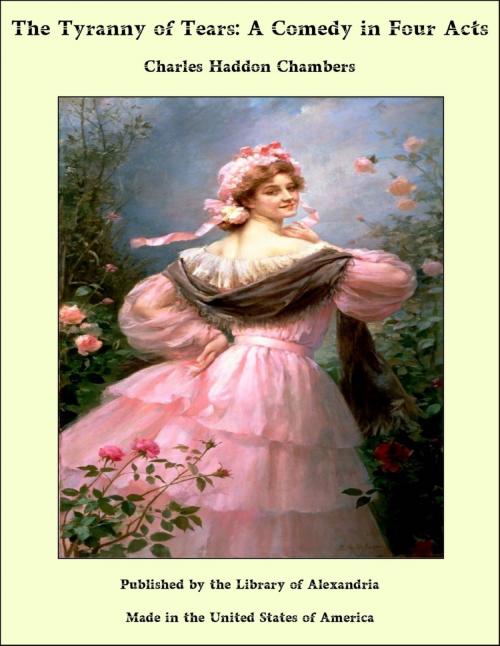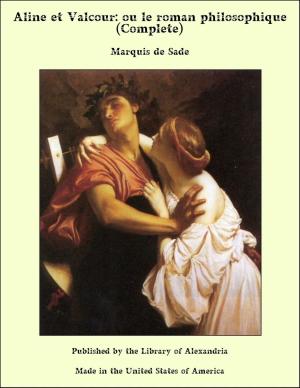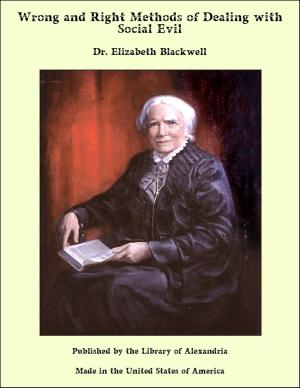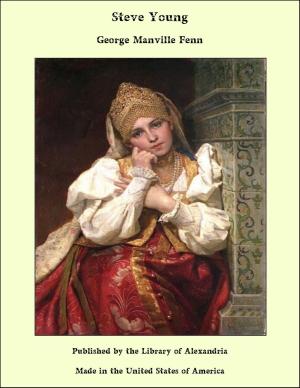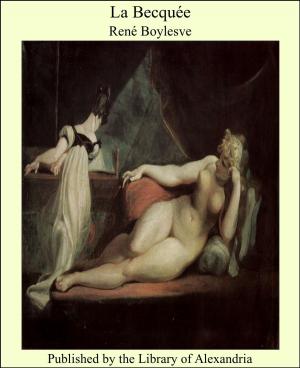The Tyranny of Tears: A Comedy in Four Acts
Nonfiction, Religion & Spirituality, New Age, History, Fiction & Literature| Author: | Charles Haddon Chambers | ISBN: | 9781465611024 |
| Publisher: | Library of Alexandria | Publication: | March 8, 2015 |
| Imprint: | Language: | English |
| Author: | Charles Haddon Chambers |
| ISBN: | 9781465611024 |
| Publisher: | Library of Alexandria |
| Publication: | March 8, 2015 |
| Imprint: | |
| Language: | English |
“The Tyranny of Tears,” a comedy of the emotions, is most ingeniously constructed on the simplest lines; it is a triumph of the commonplace. Played virtually by five characters, and with but one change of scene, it has that specious appearance of ease which is due to dexterity of craftsmanship. It is refreshing, free from theatrical expedients, and save perhaps for the somewhat accelerated wooing in Act Four, knots which we are accustomed to see snipped by the scissors of an erratic fate are here gently untangled by the fingers of probability. The germ of it, a matter of fortunate selection, is a human foible so universal that if a man is not conscious of it in his own proper person, he has not failed to smile over it among his neighbors: that combination of fondness and egoism out of which tyranny is legitimately born. This is the keynote; it announces itself speedily upon the raising of the curtain, and it is never for a moment after obscured by those modern subtilties calculated to provoke discussion among the elect. The hearer equipped with ordinary experience finds himself listening to it with an acquiescent stream of running comment. He knows this alphabet. It spells familiar words, and they come frequently. Here are commonplaces which he has failed perhaps to formulate; but now they flash upon the inward eye with a convincing vividness. This, he sees at once, is a picture of pink and white tyranny, the triumph of the weak. Domestic life has been caught and fixed at the culmination of a strain: one of those dramatic moments when the cord snaps because it has been for a long time fraying. One party to the contract has drawn up a code and imposed it upon his mate. The tyrant has some piquancy; she disarms suspicion because, although a despot, she is masquerading as something else. Another sort of bully we know: the buckram female, loud-voiced, militant, announcing herself, like the mosquito, by a vicious trumpeting. Invulnerability sits on her helm; her armor clanks a little while she strides. But this new tyrant wears another mien. Behold her! a soft-cheeked, gentle-handed ministrant, who would have husbands happy, provided they show the chivalrous courtesy of becoming so in woman’s way. She knows the rules of the game according as her sex interprets them, and it never enters her ingenuous mind that “in marriage there are two ideals to be realized.” Thus does she make her gentle progress, the victim beside her crowned with garlands, but yet a victim. She is the arch destroyer, the juggernaut in muslin.
“The Tyranny of Tears,” a comedy of the emotions, is most ingeniously constructed on the simplest lines; it is a triumph of the commonplace. Played virtually by five characters, and with but one change of scene, it has that specious appearance of ease which is due to dexterity of craftsmanship. It is refreshing, free from theatrical expedients, and save perhaps for the somewhat accelerated wooing in Act Four, knots which we are accustomed to see snipped by the scissors of an erratic fate are here gently untangled by the fingers of probability. The germ of it, a matter of fortunate selection, is a human foible so universal that if a man is not conscious of it in his own proper person, he has not failed to smile over it among his neighbors: that combination of fondness and egoism out of which tyranny is legitimately born. This is the keynote; it announces itself speedily upon the raising of the curtain, and it is never for a moment after obscured by those modern subtilties calculated to provoke discussion among the elect. The hearer equipped with ordinary experience finds himself listening to it with an acquiescent stream of running comment. He knows this alphabet. It spells familiar words, and they come frequently. Here are commonplaces which he has failed perhaps to formulate; but now they flash upon the inward eye with a convincing vividness. This, he sees at once, is a picture of pink and white tyranny, the triumph of the weak. Domestic life has been caught and fixed at the culmination of a strain: one of those dramatic moments when the cord snaps because it has been for a long time fraying. One party to the contract has drawn up a code and imposed it upon his mate. The tyrant has some piquancy; she disarms suspicion because, although a despot, she is masquerading as something else. Another sort of bully we know: the buckram female, loud-voiced, militant, announcing herself, like the mosquito, by a vicious trumpeting. Invulnerability sits on her helm; her armor clanks a little while she strides. But this new tyrant wears another mien. Behold her! a soft-cheeked, gentle-handed ministrant, who would have husbands happy, provided they show the chivalrous courtesy of becoming so in woman’s way. She knows the rules of the game according as her sex interprets them, and it never enters her ingenuous mind that “in marriage there are two ideals to be realized.” Thus does she make her gentle progress, the victim beside her crowned with garlands, but yet a victim. She is the arch destroyer, the juggernaut in muslin.
